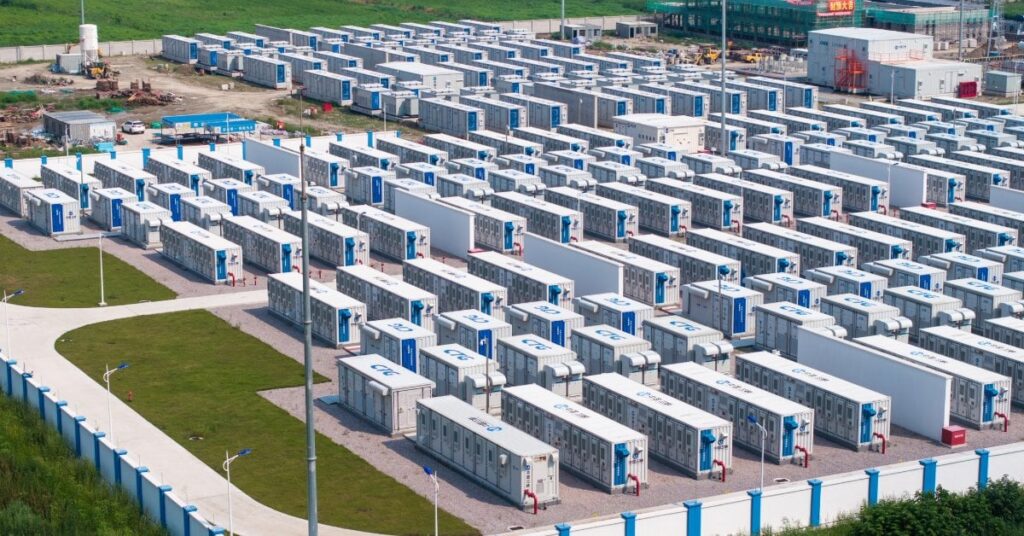As the UK transitions to a low-carbon economy, the BESS has played an integral role in supporting a cleaner energy transition. The capability of these technologies to support renewables, support grid stability, and help deliver flexible energy storage is especially pertinent.
The Rise of BESS in the UK
Current Landscape
By early 2025, there will be phenomenal growth in battery storage capacity taking place in the UK:
- Operational capacity: Around 5 GW of battery storage capacity is operational.
- Pipeline projects: There is currently an estimated pipeline demand of 127 GW of capacity with proposed developments. Of this, 8% are in construction, 31% are approved, and 61% are early stage.
- Recent Additions: In the fourth quarter of 2024, 381 MW of battery capacity was connected to the grid alone, the largest quarter growth of capacity, overall.
Future Projections
There is great potential for the growth of battery storage capacity in the UK:
- 2030 Targets: The UK has a target to increase battery storage capacity to 27-30 GW by 2030.
- Investment Opportunities: Analysts expect utility-scale battery systems will command an investment of up to $20 billion by 2030.
Key Drivers of BESS Adoption
Alignment with Renewable Energy
BESS electrification is driven by the overall transition to renewable energy, especially wind and solar:
- Renewable Source Share: Renewables provided 41% of the UK’s electricity supply.
- Grid Stability: BESS allows for energy to be stored during times of maximum production and consumption, so that the BESS can be drawn upon to supply power for variable times. Even when renewable sources may not be producing an excess.
Economic Incentives
Financial mechanisms have significantly boosted BESS revenues:
- Quick Reserve Service The rapid reserve service, developed with Haminge wholesale pricing in mind, has produced 4 times the level of income, with the 30-day rolling average in January 2025 being £92,000 per MW per year.
- Market Participation: BESS operators can now take advantage of multiple income streams, including frequency response services and financial transactions in the wholesale energy market.
Government Support
Government movements will help to sustain a positive environment for BESS uptake:
- Smart Export Guarantee (SEG): This government-led scheme supports cost savings on household and business energy by investing in storage through financial incentives.
- Clean Industry Bonus: As of February 2025, this recently developed scheme provided £27 million to all developers for every gigawatt of capacity they generated to decarbonise the energy system by 2030.
Notable BESS Projects in the UK

BESS Installations in Scotland
Scotland is hosting three of Europe’s largest battery energy storage systems:
- Projects: Coalburn 2 in South Lanarkshire, Devilla in Fife and Coalburn 1 are already under construction.
- Capacity: Co-located total power capacity of 1.5GW and 3 GWh of energy storage capacity.
- Timeline: Effective by 2027-28.
- Impact: These systems will have sufficient electricity to power 4.5 million households for two hours.
Whitelee Wind Farm Integration
The Whitelee Wind Farm, the largest onshore wind farm in the UK, has integrated a 50 MW lithium-ion BESS:
- Committed to operation: Late 2022.
- Functionality: Improves the efficiency of the wind farm by storing excess energy that can be injected back into the grid at peak demand times.
Cleve Hill Solar Park
Currently under development in Kent, the Cleve Hill Solar Park will be the largest solar farm in the UK.
- Generation Capacity: 373 MW of electricity.
- Battery Storage: 700 MWh of Battery Storage (150 MW)
- Function: It provides a more reliable energy source during periods of low solar generation.
Challenges and Considerations
Grid Connection Bottlenecks
As the BESS project has grown rapidly, so has the problem with grid connection. The grid connection issues include:
- Overcapacity: Even by 2035, the queuing capacity for proposed battery energy storage projects pending grid connection will be more than four times greater than is required.
- Regulatory Oversight: Will require prioritising essential projects to enable a timely connection to the grid.
Safety and Regulatory Compliance
As BESS installations grow, the safety of these applications is of increasing concern:
- Fire Risks: The UK government in 2023 updated its Planning Policy Guidance to adopt fire safety specifics for developments that incorporate a BESS.
- Engagement: Developers should engage local firefighting operational arms and associated fire services during the Planning process.
Battery energy storage systems (BESS) play an important role in successfully implementing integrated renewables, providing grid stability, and ensuring energy efficiency during the energy transition currently being witnessed in the UK. The BESS sector is still a tough investment environment despite the intermittent energy supply and high costs when it comes to long-term storage, but it can set the UK on its road to being a leader in sustainable energy storage technology.

